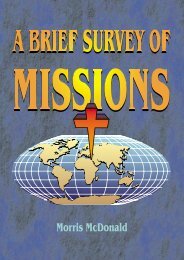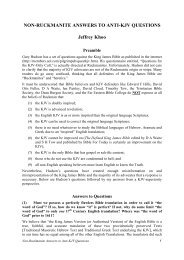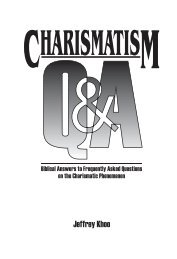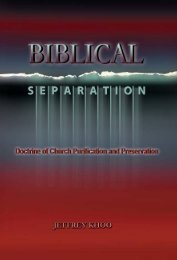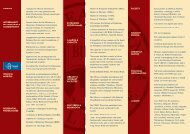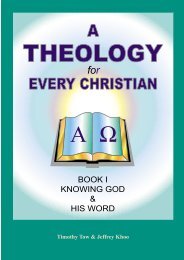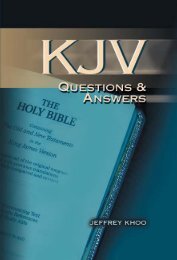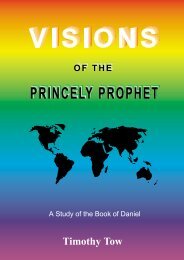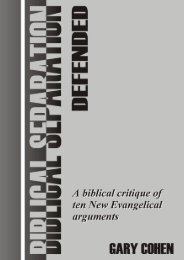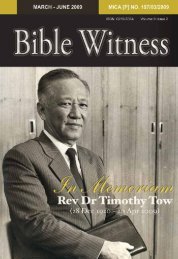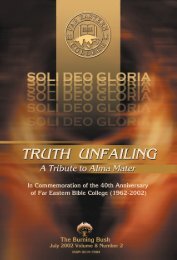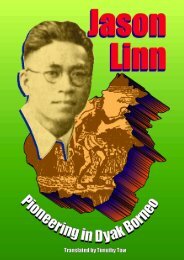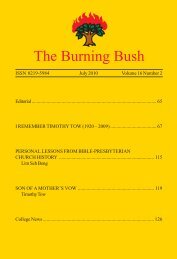The Burning Bush - Far Eastern Bible College
The Burning Bush - Far Eastern Bible College
The Burning Bush - Far Eastern Bible College
You also want an ePaper? Increase the reach of your titles
YUMPU automatically turns print PDFs into web optimized ePapers that Google loves.
A REVIEW OF THIO LI-ANN’S MIND THE GAPreasoning. <strong>The</strong> audiences who will enjoy this book most are likely thosewho appreciate logical analysis and lengthy quotations from a variety ofauthors. It probably suffers from trying to accomplish too many purposesand at times can appear unfocused. Notwithstanding this, Thio drawsfrom a wide diversity of sources and has clearly thought through theissues from a Christian perspective and in application.In the first section, Thio gives a useful theological presentation ofthe need to live a holy and pure life as a believer. She is to becommended for taking a clear biblical stand against sexual immorality,particularly that of homosexuality. <strong>The</strong> author warns that those who takesuch a stand need to be prepared for persecution, mocking, hatred,ostracism, and even threats to life. Thio’s argumentation is significant, asshe speaks throughout with personal experience of taking unpopularpublic stances on these issues. She clearly applies her unique perspectiveas a law professor and former parliamentarian in formulating practicalsuggestions in responding to the threat of moral relativism.Part Two is probably one of the best sections in the book, as Thiodiscusses the “moral barometer” of a nation and the corruption of sin.She maintains that the <strong>Bible</strong> teaches from examples such as Sodom andGomorrah that there is a “threshold or spiritual tipping point” that oncecrossed inevitably brings divine judgment to any nation. It is pleasing thatThio unequivocally denounces false ministers by stating, “the attempt bysome clergy to campaign for the recognition of the perversion of ‘samesexmarriage’ is evidence of a degenerating priesthood” (104).In Part Three, Thio delineates how the spirit of lawlessnessmanifests in the “philosophy, morality and politics that shape our laws,systems and mindsets.” She traces the genesis of lawlessness from theconfrontation in Eden to the contemporary relativism that belligerentlyopposes Judeo-Christian morality in what she calls “the public square.”<strong>The</strong> author boldly identifies the traits and agents of lawlessness.Particularly useful is Thio’s incisive dissection of the semantic gyrationsand rhetorical tricks of relativists in distorting the truth and propagationof liberal agendas. For instance, she delineates how it is not hypocriticalto support social norms as everyone draws a fixed line of morality atsome point. No one supports the idea of society recognising any and allforms of social organisation. Thio cleverly shows how relativists simplydraw a line at another place and shout “bigot” or “homophobe” at anyonewho would draw a line at any other location on the floor. <strong>The</strong> book55



